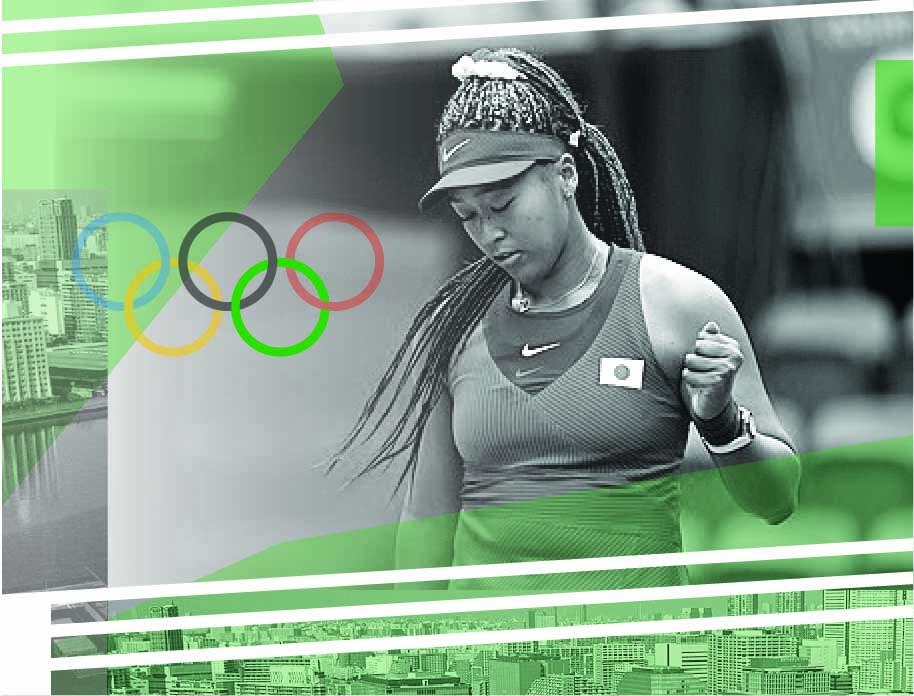
Dr Seok Lee
Associate Director of the James Joo-Jin Kim Program in Korean Studies at the University of Pennsylvania.
Email: seok2@sas.upenn.edu

Section 4: Fandom & National Identity
- The Tokyo 2020 Olympic Games: British imperial identity affirmed
- How much is too much home-nation focus in Olympic coverage?
- National and ethnic Chinese identities on the Indonesian badminton court
- The Men’s 1500 metres: Not quite erasing the ghosts of history
- Home advantage in the Summer Olympic Games: evidence from Tokyo 2020 and prospects for Paris 2024
- Historical disputes, national identity, and the South Korea-Japan summit that did not happen
- Sports betting and the branded purity of the Olympics
- Communicating corporate social responsibility at the Tokyo 2020 Olympic Games
- Silence in the stands: Does it matter for fans?
- Fans as MVP, or the need for sensuous audiences in sport
- Red, white, and rivalry: A brief discussion of United States rivalry at the Tokyo Olympic Games
- Empty stadiums and the other sites of Olympic fandom
- Pop culture diplomacy: Japan’s use of videogames, anime to promote the Olympics and appeal to younger audiences
- Fans as MVP, or the need for sensuous audiences in sport
- Red, White, and Rivalry: A Brief Discussion of United States Rivalry at the Tokyo Olympic Games: Olympic and Paralympic Analysis 2020: Media, Fans and the Politics of Sport
- Empty stadiums and the other sites of Olympic fandom
- At the intersection of COVID-19 and Tokyo Olympics 2020: Vlogs and the expression of Chinese nationalist sentiments
Over the three Summer Olympic Games in which Tokyo was designated as a host city, Korea’s status has changed dramatically. Tokyo’s 1940 “phantom Olympics” was exciting news for Koreans expecting many Europeans to visit the Peninsula on their way to Tokyo via the Trans-Siberian Railway. Back then, however, Korea was under strict Japanese colonial rule (1910-45). The 1964 Tokyo Games evidently presented a wide disparity in international status and economic level between the former colonized and the colonizer. Japan, as the host nation, demonstrated its position as a first world economic power and technological leader through the shinkansen and first live color satellite broadcast while Korea, devastated by the Korean War (1950-53), had only begun its economic development plan. Japan’s impressive success at the 1964 Olympics (29 medals) was in stark contrast with the pathetic performance of the South Korean team (3 medals). For South Koreans, Japan was a role model and a hard act to follow. And then, what about the 2020 Tokyo Olympics?
The South Korea–Japan relationship has been often rocky, but since the early 2010s, it has plunged toward its nadir, with no sign of recovery in sight. The issue of forced labor and sexual slavery during Japan’s colonial rule and a clash over the ownership of islets (Dokdo/Dakeshima) in the sea have been a chronic thorn in Seoul-Tokyo relations. But recently, the fronts of conflict have stretched to economy and even the typically intact realm of security cooperation. Against this backdrop, the 2020 Tokyo Olympic Games were expected to reduce tensions between the two sides. Nonetheless, the preparation for the summit between South Korean President Moon Jae-in and Japanese Prime Minister Yoshihide Suga did not proceed smoothly due to their different perspectives on thorny issues. Ultimately, after Hirohisa Soma, the deputy chief of mission at the Japanese Embassy in Seoul, apparently ridiculed Moon’s diplomatic efforts to improve the bilateral relations between South Korea and Japan as tantamount to “masturbation,” Moon scrapped his Tokyo trip plan.
Naturally, the 2020 Tokyo Games became “War Minus the Shooting,” even outside of the sports field, for both nations. The torch relay route map on the Tokyo Olympics website demonstrated Dokdo/Dakeshima as part of Japan’s territory, causing Seoul to consider boycotting the Summer Games. The photo of Sohn Kee-chung, a Korean gold medalist marathoner in the 1936 Berlin Olympics, at the Japan Olympic Museum provoked Korean outcry because Sohn’s gold medal represents Korean resistance against Japanese colonial rule. Banners hung at the balconies of South Korean athletes’ rooms at the Olympic Athletes’ Village were removed after the IOC ruled they were provocative because the reference was borrowed from the words of Korean naval commander Yi Sun-sin, famed for protecting his nation from Japanese invasion during the Imjin War (1592-1598). As a countermeasure, the South Korea Olympic Committee demanded a ban on the “Rising Sun” flag, seen as a reminder of Japan’s militaristic past. In response to Japanese anger over South Korea’s Olympic food site set up on Fukushima woes, South Korea argued that the site had been operated since the 2008 Games and pointed out Japan’s silence on the United States airlifting food materials from their home country for their athletes.
A notable change regarding frayed Seoul–Tokyo relations was Korea’s perspective on the Japanese management system for mega-sports events. Despite their hostility toward Japan, Koreans had long admired Japan’s diligent execution of a detailed administrative system, technological advances, consensus-building, world-class infrastructure and general order and cleanliness. During the 2020 Games, however, Korean mass media and social media were swamped with criticism and even sensational taunts about Japan’s incompetent operation. The sharp increase of coronavirus cases in Tokyo, concerns over the cleanliness of the waters of Tokyo Bay and dystopian atmosphere of the opening ceremony symbolized Japan’s rusty Games. The crude environment of the Tokyo Olympic Village, including eco-friendly cardboard beds mocked as anti-sex beds, became a main target of derision by Korean news outlets. On the other hand, Korean companies in charge of payment systems, 5G services, and ticketing systems at the Tokyo Olympics were described as symbols of Korea’s cutting-edge technology. Overall, 2020 Tokyo was the first sports event where Korean mass media and public disparaged the Japanese administration and facilities in contrast to the innovative and spectacular PyeongChang 2018 Olympic Winter Games.
Korea’s critical or even sarcastic view of the 2020 Tokyo Games resulted from the narrowing gap between Seoul and Tokyo in international politics, economy and cultural field. For instance, President Moon’s participation in the G7 summit as an observer affirmed Korea’s elevated status. The International Monetary Fund’s (IMF) data indicate South Korea is projected to surpass Japan in GDP (PPP) per capita by 2023. Korean popular culture has gone global, especially K-pop and Korean films, which have been recognized by Billboard and the Oscar Awards. Among a number of newly independent nations following World War II, South Korea is the first country to win more medals than its former colonizer since the 1988 Seoul Olympic Games. Koreans, particularly the younger generation, have finally overcome their inferiority complex vis-à-vis the Japanese to the extent that they do not much care about the medal counts and refuse biased Korean Olympic broadcasting against Japanese athletes. The 2020 Tokyo Games ushered in a new phase of the first equal relationship between Seoul and Tokyo since the “Age of Empire.”

